The VTB United League runners-up have once again begun a massive rebuild, but this may be Khimki’s most fascinating summer signing spree yet. Dmitry Gerchikov explains why.
Every summer, Khimki Moscow Region starts from scratch. Almost as soon as VTB United League free agency begins, the Russian powerhouse cleans out half the roster and announces plans to remake the team. The Yellow-Blues have tried every strategy imaginable to bring down CSKA. In good years with a budget that would be the envy of most clubs in Europe, Khimki has brought in big names to go with reliable Russian role players. At other times, the focus has been on hard-working, blue-collar players to complement a token superstar.
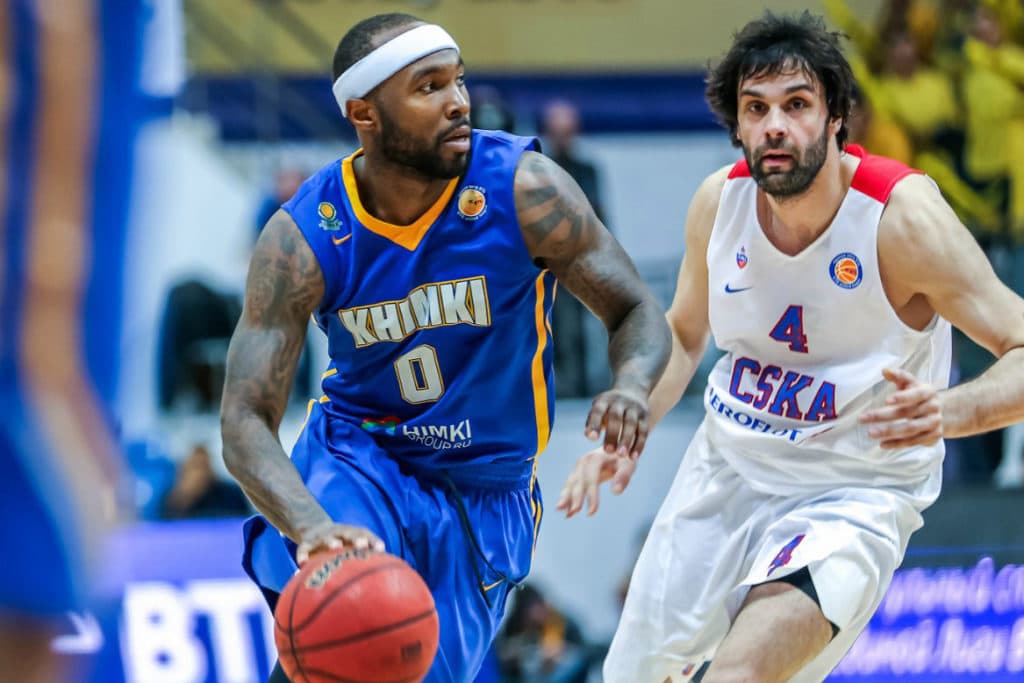
Khimki’s other strategy has been to dish out big money for a handful of stars, then scramble to find balance with lower-paid players and a short bench.
Obviously, coaching has always played a big role in Khimki’s success on the court. A coach’s ability to communicate effectively with his stars has a direct impact on his control of the team. Listening to the scouts and demonstrating tactical flexibility also impacted Khimki’s success over the long haul. Handling the media and deflecting outside criticism are key components in building team chemistry and making guys mentally strong.
In order to take down CSKA or at least accomplish its goal of qualifying for the EuroLeague, Khimki needed to excel in each of these categories. Even the smallest oversight by the coach was quickly exposed… Khimki’s annual juggling act between multiple competitions sooner or later would reveal the team’s weaknesses.
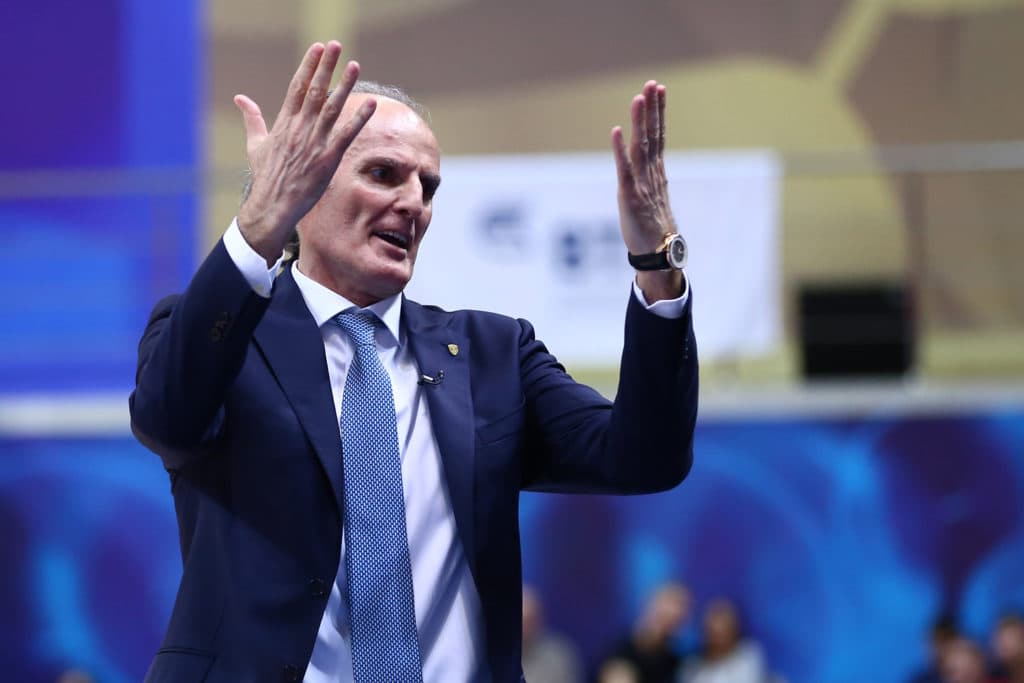
Elevich, Kemzura, Scariolo, Meleshchenko, Kurtinaitis and Ivanovic each met with varying degrees of success. In the beginning, prior to its EuroLeague debut, the club was continually adjusting ambitions and fine-tuning the inner workings of an elite pro basketball team. But with the arrival of the legendary Italian boss, the club adopted an all-or-nothing approach, hungry for glory year in and year out. If a coach couldn’t meet heightened expectations, their fate was sealed.
Khimki’s new coach, Georgios Bartzokas is very skilled at meeting concrete goals, no matter how ambitious. In his homeland, he built sympathetic, overachieving squads at Larissa, Maroussi and Panionis. They also found success in Europe, thriving on international competition while helping the front office bring in good money. At Olympiacos, he kept Duda Ivkovic’s structure, while increasing the level of talent at the club. His defensive innovations, meanwhile, uncovered unseen potential in numerous players, helping the Reds win both the EuroLeague and intercontinental cup.
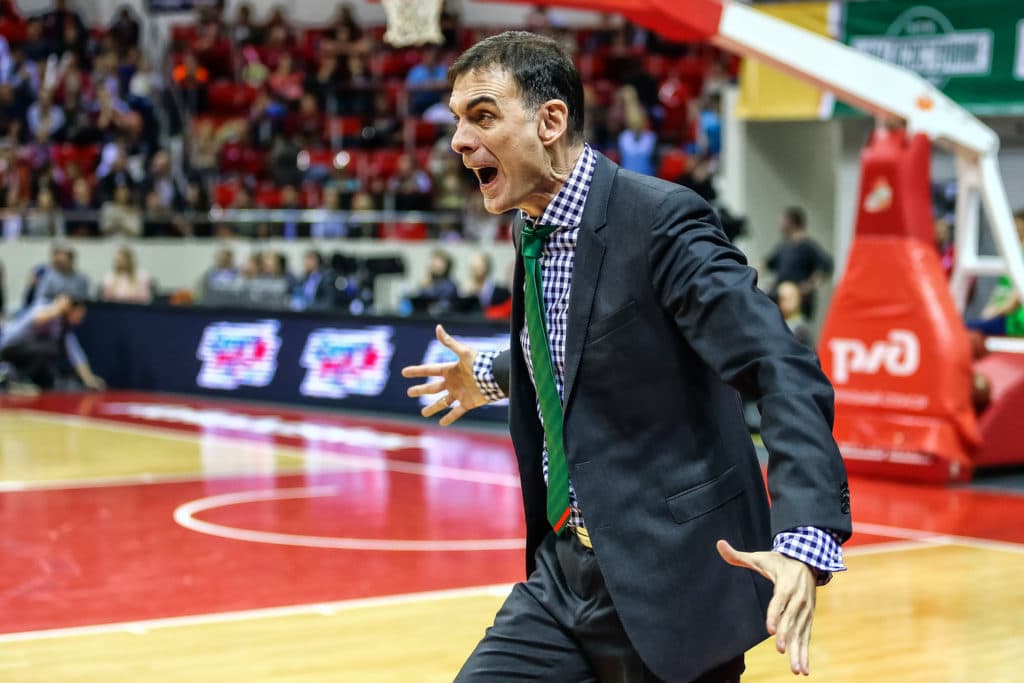
Finally, at Lokomotiv Krasnodar he demonstrated that smart signings, discipline and a balanced rotation between key contributors can spark a club to dizzying heights. Kuban didn’t just want to make noise in the EuroLeague. Krasnodar wanted to do it in style and make a name for the Lokomotiv brand in Europe. Going forward, the team’s positive image abroad helped attract even more talent. Bartzokas went above and beyond the call of duty with Kuban, ultimately winning a EuroLeague bronze medal thanks to his ability to run a tight ship.
He didn’t get enough time in Barcelona. Bartzokas inherited an aging, flawed roster, but didn’t have freedom to rebuild as he wished. He had to deal with numerous injuries with almost 30 different players putting on a Barcelona jersey last season. He also didn’t get support from the leaders who were used to a more improvisational style and didn’t mesh well with the Bartzokas system. But the biggest problem proved to be the mixed signals coming from the front office. Barcelona’s bosses wanted to win titles, bring in a new generation, ensure roster continuity and avoid spending much in free agency. Bartzokas was able to convince the club to spend on 2-3 players, but couldn’t figure out how to navigate frequently conflicting ambitions. As a result, Barca was extremely unstable all season and crashed out of the EuroLeague and ACB League much earlier than anticipated.
Georgios analyzed what had happened and was very careful choosing where to coach next. UNICS wasn’t able to sign him and discussions with Maccabi were too uncertain, while the club showed signs of similarities to the Barcelona front office. Darussafaka, meanwhile, couldn’t make up its mind about retaining David Blatt, which conflicted directly with the Greek coach’s desire to work at a team with clearly stated goals.
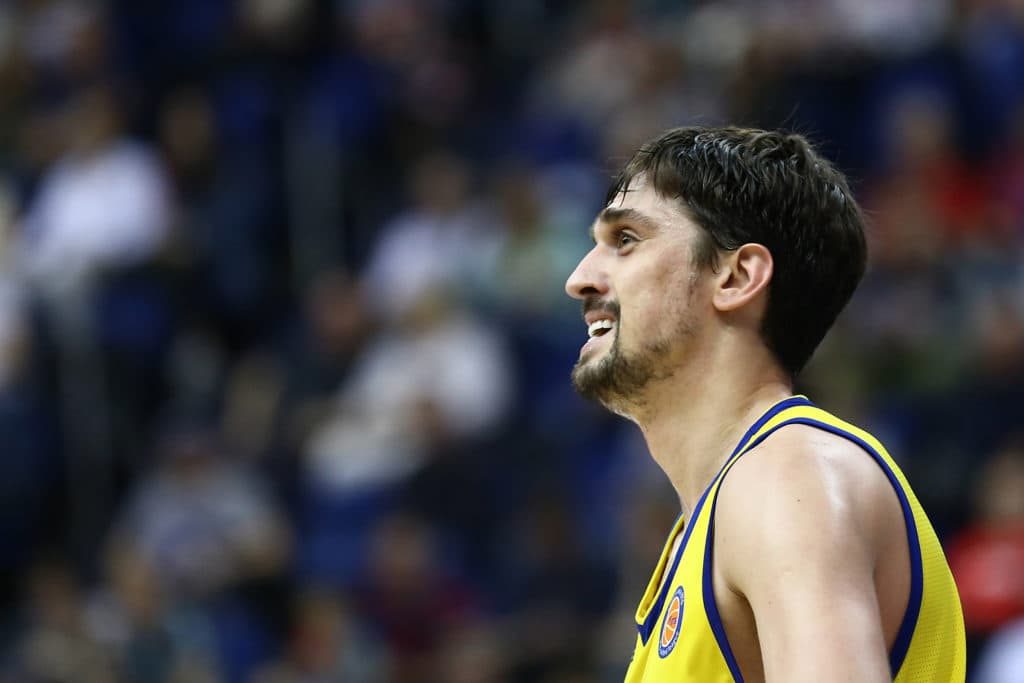
Khimki, on the other hand, matched all the minimum requirements. To begin with, the club challenged Bartzokas to go as far as possible in the VTB United League and EuroLeague. Second, they gave him freedom to choose and build a new roster. Third, he’ll have several years to fully implement his system and the full confidence of the front office. His work at Lokomotiv will be an example to young coaches in the League for years to come. Right now it’s vital to set the system in motion in Khimki as soon as possible, given the heightened pressure compared to Krasnodar. Bartzokas will have to win immediately, Olympiacos-style. Khimki won’t accept any less. But for someone like Bartzokas, that’s what gets him fired-up each morning and led him to return to Russian basketball.
What has Georgios already done? Plenty. To begin with, he’s cut loose the dead wood that was dragging the team down. Almost all the foreigners remaining from the Ivanovic era that did not live up to expectations have left the club. Pullen, Brown, Boungou-Colo, Evans, Hummel freed up space for versatile, two-way talent on the roster.
Khimki, for one, will be quicker compared to the previous year and a half. Second, the defense will remain Bartzokas’s cornerstone. Switching and constant help defense predicated on athletes that can play at multiple positions, after all, was what allowed him to craft a relentless Loko squad.
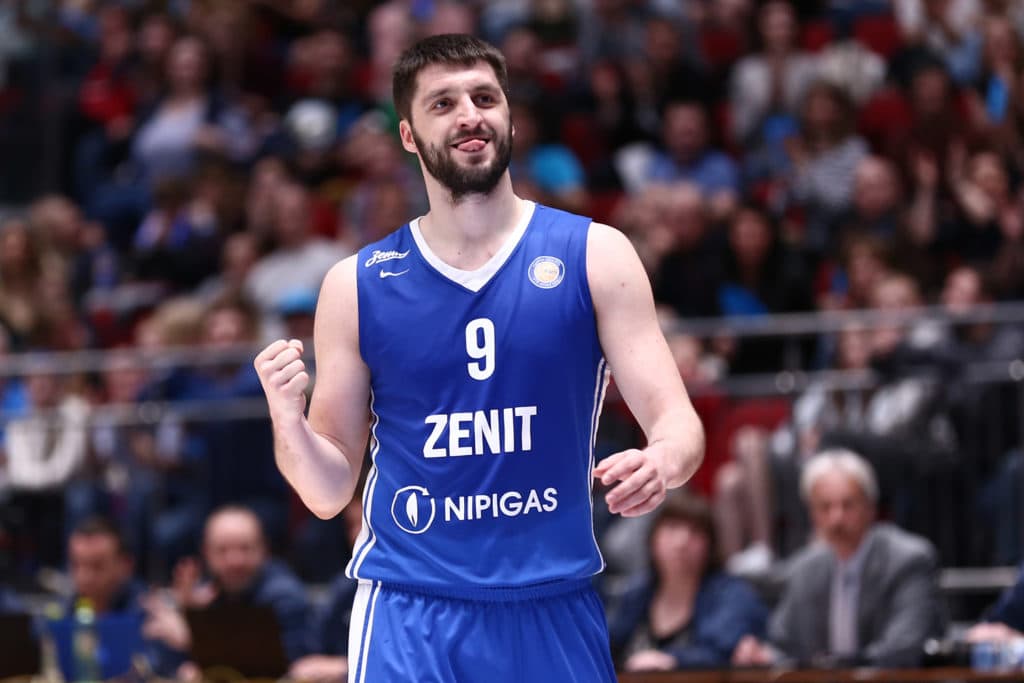
In addition, the Yellow-Blues will finally be rid of an over-dependence on Shved and several other strategic shortcomings in recent years based on the signings already completed and those rumored still to come.
Judge for yourselves. At point guard, Khimki picked up the most unselfish playmaker in the League last season. Bartzokas wanted Stefan Markovic at Barcelona last summer already, but didn’t manage to nab him. Having him on the roster this season will greatly reduce the number of inefficient iso plays and improve the team’s opportunities from beyond the arc. Markovic’s ability to take care of the ball and spark fast breaks are a perfect fit for Bartzokas’ system.
Acquiring Charles Jenkins was another brilliant move on defense. Last year we save how the team’s super small lineup with Monia at power forward sagged on the wings, leaving the Russian captain on his own. Now the situation will change considering Jenkins is capable of locking down anyone that tries to sneak through. His understanding of the game and spacing wowed Blatt, who tried to get him to join Darussafaka. But Khimki came out on top and for $100,000 shored up the flanks on the starting five. Khimki also got a dangerous option on offense, one that can stretch opposing defenses that want to sag off the perimeter.
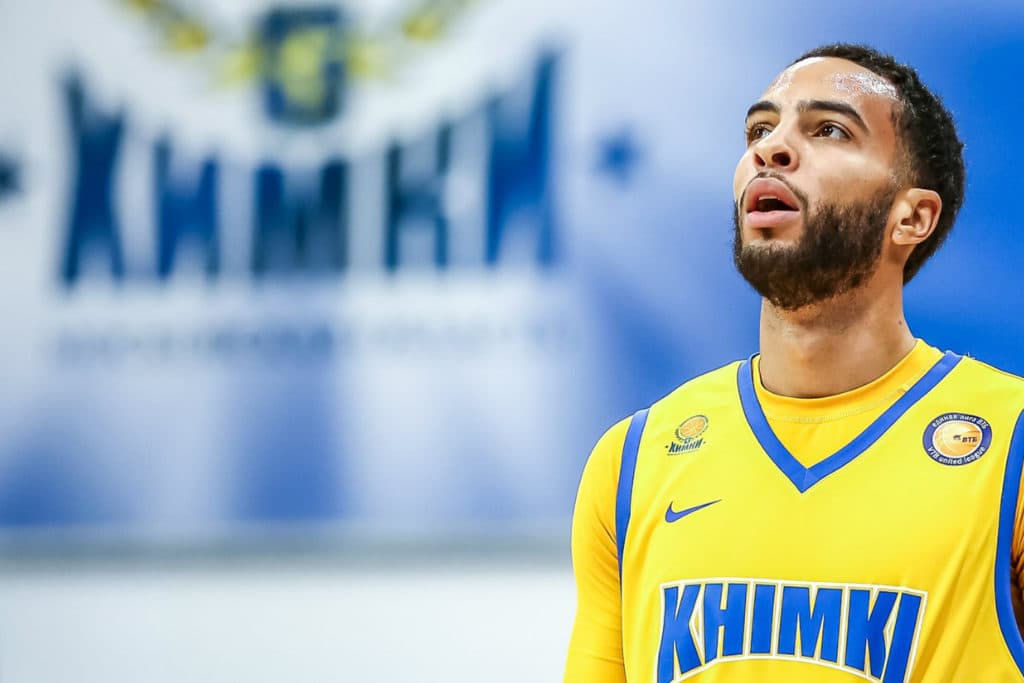
Rumor has it that Tyler Honeycutt could be returning to Moscow Region, after playing here from 2014-2016. He nearly averaged a double-double with Anadolu Efes, showing you can make a great living by doing the dirty work on the court. He’s also got speed and versatility to go with patience and a willingness to play physical ball. He’ll make Khimki deeper and give Bartzokas an opportunity to painlessly transition to small ball to push the tempo.
Finally, we shouldn’t forget about Khimki’s success in retaining a solid Russian core. Everyone who’s capable of making an impact got new contracts–Monia, Vyaltsev, Zaitcev–while the Zubkov acquisition made the club’s Russian talent pool even deeper. The forward took a big step forward in his career under Bartzokas in Krasnodar and should thrive under his old coach. Even the Sokolov contract extension has a purpose, since slowing the tempo and shifting the style of play (and occasionally shifting the focus on offense to the paint) is one of Bartzokas’ favorite tricks for surprising the opposition. When you add in the presence of Pateev and Likhodey and the likelihood of several more additions, it’s clear that the Greek hasn’t been this well-prepared for the start of a season in years. Of course, everyone is else is also reloading (just look at Zenit’s activity in recent weeks), but it’s not a stretch to say this could be Khimki’s most balanced roster ever. That’s an exciting prospect for what’s already shaping up to be an outstanding season in the VTB United League.
























